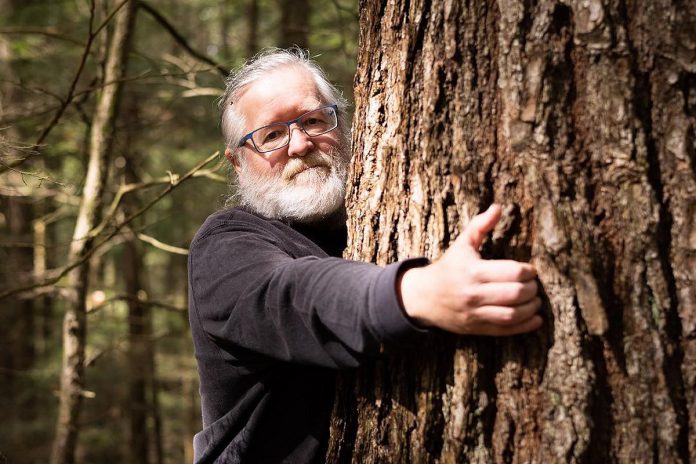
From January 27 to February 4, the 2022 ReFrame Film Festival will connect our communities when we need it most.
Tickets and passes can be purchased at reframefilmfestival.ca, where you’ll also find information about the virtual festival format.
I had the pleasure of speaking with Amy Siegel, ReFrame’s creative director, about how this year’s festival covers environmental and social justice topics.
“Every year for the past 18 years ReFrame has brightened up the depths of winter,” shares Siegel. “I’m proud to say that ReFrame 2022 is here to do that when we need it most. We are looking forward to the conversations and connections that come from watching these films together, even when we are apart.”
“We’re living in a deeply polarized world right now. There are several films this year that are about the struggle to have conversations across divides. What does it mean to have differing opinions? What is the power of art in political work? Many of the answers come from the value and generosity of having vulnerable conversations.”
In addition to this focus on the power of conversation, the environmental films in ReFrame 2022 are connected by two underlying themes: food justice and collective action.
VIDEO: “Food For The Rest of Us” trailer
Food security, food sovereignty, and sustainable food production are all key concerns as we tackle the climate emergency and the ongoing pandemic.
“Many of the films at ReFrame this year explore issues of food justice,” Siegel explains. “Films like Mnoomin: Gift of the Creator reflect on the cultural role of food and food sovereignty, while films like Food for the Rest of Us ask questions about our local relations to food.”
Mnoomin: Gift of the Creator is a local film premiering at ReFrame 2022. Mnoomin is also part of the all-Canadian short film program called “The Earth Sustains Us.” This short film program is packed with premieres and powerful films — including several local films — that you’ll have a difficult time watching if you miss ReFrame 2022.
The feature-length documentary Food for the Rest of Us is about radical activism through farming, Siegel shares.
“The film looks at four community food projects across North America, each in its own way exploring how we can develop more sustainable and equitable access to food,” Siegel says. “Director Caroline Cox will be speaking at ReFrame Festival this year. Cox lives in the Northwest Territories, but she went to school in Lindsay, Ontario. She is excited to be talking at ReFrame 2022 because she still has strong roots in this area.”
“Food for the Rest of Us is particularly interesting because one of the four profiles is a butcher who is trying to reconnect people to humane and local meat supply chains,” Siegel adds. “It is rare in an environmental film about farming practices to bring in sustainable meat eating. That’s an interesting choice.”
VIDEO: “Follow the Drinking Gourd” trailer
Follow the Drinking Gourd is another film on the topic of food justice.
“About the Black food justice movement, this film links the legacy of slavery in the United States to land loss and climate change,” Siegel says. “It manages to do that in 60 minutes while also being accessible and family friendly.”
The other underlying theme, collective action, encompasses the need for both activism and accountability in addressing the climate emergency.
“We see this collective action taking many forms,” Siegel explains, including the local short Conserving Catchcoma, which is premiering at ReFrame 2022 as part of the local “Earth Sustains Us” short film program.
“Conserving Catchacoma reveals the need for collective action to preserve old growth trees here in our own community,” Siegel says. “Many people take the natural beauty of this region for granted.”
Directed by Mitch Bowmile, the film follows efforts to conserve the largest-known stand of old-growth eastern hemlock in Canada. Located in Catchacoma, just north of Peterborough, this forest is home to at least 10 documented species at risk.
VIDEO: “Arica” trailer
“There is also the collective action involved in the lawsuits holding governments and corporations accountable in films like Arica and Youth v Gov,” Siegel adds.
Arica is made by Chilean-Swedish filmmaker Lars Edman, who was born in Chile and grew up in the Swedish village of Boliden, home of a Swedish mining company that dumps toxic waste into a river in Chile. Here, collective action takes the form of the question, “How do we hold first-world nations and corporations responsible for toxic waste?”
Youth v Gov follows 21 youth activists from across the United States of America as they file a ground-breaking lawsuit, making the case that the government has endangered their constitutional rights by creating the climate crisis through six decades of action. Hint: the film is about more than just a lawsuit.
In the Canadian film Wochiigii lo: End of the Peace, we see collective action in the form of coalitions across nations, Siegel says.
This film follows Diane Abel and Chief Roland Willson from West Moberly First Nations, who are part of a coalition of resistance fighting to preserve their treaty and cease construction of a multi-billion-dollar mega-dam along the Peace River in British Columbia, Canada (commonly known as Site C). Director Heather Hatch will be speaking at ReFrame 2022.
Toxic Neighbour is a short film about Eugene Bourgeois, who located his sheep farm next to the world’s largest nuclear facility, the Bruce Nuclear Station in Kincardine, Ontario. When his family and sheep were repeatedly exposed to toxic gases from the nuclear station, Eugene dedicated the rest of his life to pushing his nuclear neighbour for greater transparency and accountability.
VIDEO: “Toxic Neighbour” trailer
Walking with Plants is a visually and musically stunning exploration of how Styawat (Lee Joseph) walks between academic and cultural worlds. Styawat grew up away from her traditional territory in Squamish, B.C., but came to a deeper understanding of her identity as a Skwzwú7mesh woman and returned to her family home. There, she contemplates her relationship with plants and the role of plants as teachers.
GreenUP is once again excited to be a sponsor supporting the ReFrame Film Festival. Visit reframefilmfestival.ca/festival/passes-tickets/ now to get your passes and tickets and join us in the local and global conversations and actions these amazing films inspire.
For information about all 71 films screening at the 2022 ReFrame Film Festival, visit the online film guide at reframefilmfestival.ca/film-guide.



























